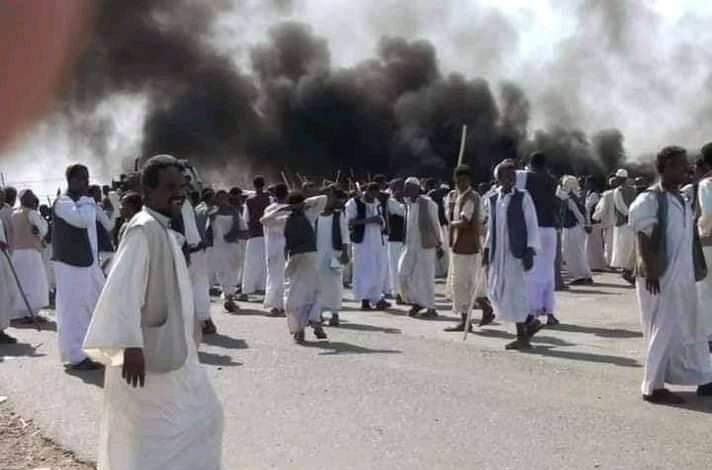Eritrea has lately improved its relations with Sudan and has moreover sought to play a mediating role in resolving the political crisis in eastern Sudan, where tribal leaders are calling for new regional arrangements. Asmara traditionally has maintained strong ties with Ethiopia, with which Sudan has border issues and a dispute over water resources. The US has in fact-imposed sanctions on Eritrea for its role in the civil conflict between Ethiopia’s central government and the Tigray. By mediating in Sudan, Asmara appears to see an opportunity to break its isolation internationally and create a new image for itself as mediator and an effective actor in the Horn of Africa.
The President of Eritrea Isaias Afwerki put forth a proposal on the issue last April, which he believed struck a compromise between the various actors and presented it to General Abdel Fattah Al-Burhan. Eritrean efforts did not stop there, but through its ambassador in Sudan, Eissa Ahmed Eissa, it sent invitations to tens of tribal leaders and mayors, as representatives of the majority of east Sudan’s inhabitants, as well as representatives of the Sudanese government, to participate in a congress aimed at airing various views regarding issues of contestation and reaching a consensus. Sudanese authorities, however, on the 4th of August prevented the tribal delegation from crossing into Eretria, which they attempted to do at a border crossing point which has been closed for many years.
Asmara’s motives
In addition to projecting a positive image of itself as an actor bent on establishing peace and stability in the region, Eritrea hopes to use its efforts in Sudan as a vehicle through which it can directly engage with the European Union. Afwerki has proposed his country could host the armed militias from the Darfur region, which have been engaged in the conflict in Libya, as the EU is now searching for solutions on how to remove them from the Libyan scene.
Eritrea is keen to establish influence in the Horn of Africa region and had previously attempted to achieve this through interfering in Somalia. It is worth noting that the UN has previously imposed sanctions on Eritrea, accusing it of providing the Somali “Al Shabab” movement. Asmara sees an opportune moment to enhance its regional standing, as Addis Ababa’s standing has been somewhat undermined by the civil war with the Tigray. Eritrea is gradually ending its regional isolation, by resuming relations with Ethiopia in 2018 after a 17-year break. It has also been playing a mor active role in regional organizations, such as IGAD and the African Union. This would be done by trying to mediate in Sudan, as they had done in Somalia at the turn of the century, which would strengthen Eretria’s position as a mediator in the region. This would try to remove the image of a bad actor in the region since the crisis in Tigray.
In its bid for raising its regional profile, Asmara not only offered to mediate in east Sudan, but it also overcame its reservations regarding the actions taken by the Sudanese military last October and put forth a proposal to end the crisis which ensued. Moreover, last year, it offered to mediate between Sudan and Ethiopia regarding their border issues. However, Sudan re-buffed the proposal, arguing that Eritrea could not be view as a neutral party in this respect.
It is noted that relations between Sudan and Eritrea have noticeably improved since the fall of the Bashir regime. Asmara has strengthened its ties with the military in Sudan, rather than the civilian parties, as it appears to view a military takeover in some form to be the most likely scenario. Asmara was not on good terms with the Al-Bashir regime due to its Islamist orientation, and what Asmara regarded as its support to the Islamist political movement that opposed Afwerki’s regime.
Eritrea also hopes to make tangible gains in the region of east Sudan, with which is shares a border, and has strong ethnic and tribal ties. The failure of efforts by Sudan’s government to bring stability to the region has therefore given Eritrea an invaluable opening. Its ability to bring peace and stability to this region will not only enhance Eritrea’s national security, it stands to make economic gains from the reopening of the border crossings between the two countries. This will stimulate the economy and enhance trade, especially as Eritrea is dependent on manufactured and agricultural goods produced by the tribes that extend across the borders in both countries.
Regional issues
While Asmara’s proposals to resolve various crises in Sudan may not come to fruition soon, it still has reasons to strengthen its ties with Khartoum, especially in view of its current tensions with Addis Ababa. Asmara seeks to reach understandings with Sudan regarding issues that impact its security and economic interests, as the unrest in east Sudan has significant implications for Eritrea, due to the extended ethnic and tribal links across the border in this area. Eritrea is also concerned and impacted by the situation in the contested border area of “AL Fushqa” between Sudan and Ethiopia. Moreover, Asmara is concerned about the situation in Tigray, and views the Tigray Liberation Movement as a threat to its own security.
These issues have led Eritrea to reach out to Sudan, to improve bilateral relations and to discuss issues related to relations with Ethiopia. They have sparked Asmara’s efforts to strengthen ties with the ruling power in Sudan, as well as its efforts to mediate in the crisis of east Sudan. Through these efforts, Eritrea seeks not only to make gains related to its direct security and economic interests, but also to break out of its diplomatic isolation, and establish a new standing as an effective actor in the Horn of Africa.

